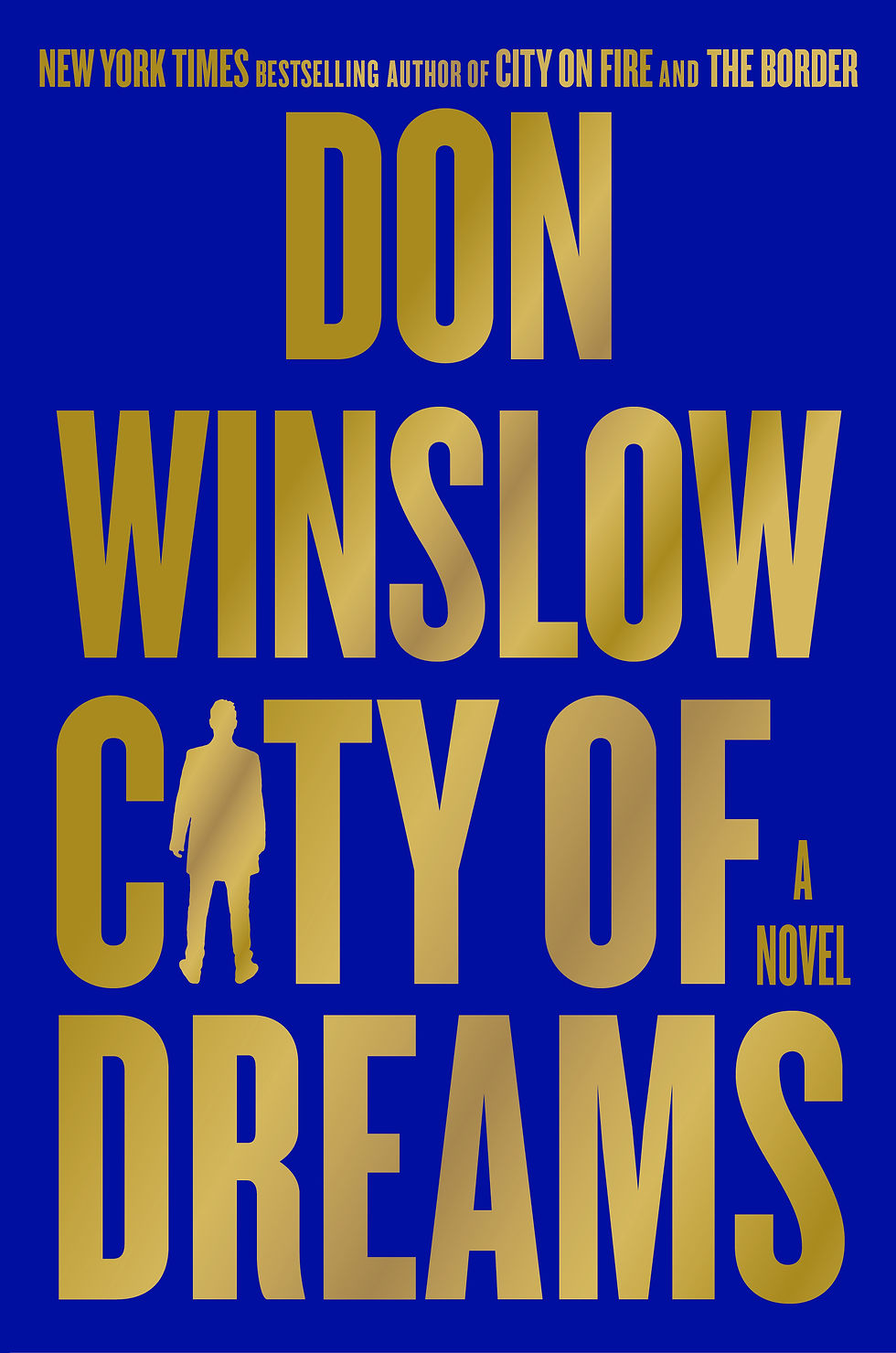A REVIEW OF CITY OF DREAMS
City Of Dreams stands as the middle book in the trilogy of a gangland saga centered on Danny Ryan, a member of Providence Rhode Island's Irish mob who reluctantly rises to leadership during a war with the mafia in the eighties. The city of this title is L.A., a land of reinvention in which Danny attempts to outrun his past. Any crime fiction fan knows how that works out.

The story starts in 1988 after the end of City On Fire where Danny and his crew are on the run after robbing a heroin hand off the mafia has with a cartel. Danny ended up killing a crooked FBI agent on the beach and tossing the drugs in the ocean. To make it up to his crew, he orchestrates robbing the narcos of their cash. Danny tells his boys to lay low and they head west as millionaires. Danny ends up in Vegas, with his estranged, politically connected mother, trying raise his son, leaving the east coast behind to a mafia suffering internal strife that the story revisits from time to time in subplots.
The loosest cannons of the crew, two brothers known as The Altar Boys, find their way to L.A. A couple years later, they learn a movie is being made about the Providence war. Connecting with a gang hanger-on who sold a treatment to the studio, they find a way to get onto the picture and cause trouble on the production. A studio fixer gets called in, a former FBI agent who knows about Danny and how his boys will do what he says.
Danny takes the opportunity to be an investor in the movie, thinking he's found a way to go legitimate and lie low as long as he remains behind the scenes, Just before it gets thick into Get Shorty territory, the story moves back to its greek tragedy roots, Danny learns that the production is being overcharged for services. The company is connected to a small mafia family with connections to a big one in Chicago. However his involvement with Diane Carson the actress who plays the woman who many believe ignited the Providence war. Diane has been in and out of rehab and holds her own dark past.
The use of Hollywood becomes integral to the the book's theme. Danny's history physically confronts him as he walks down studio recreations of the old neighborhood and interacts with actors dressed as dead friends and enemies. His involvement with Diane playing the woman he struggled to talk his brother in law to stop seeing adds to the funhouse mirrors of his history that he appears to be repeating.
Winslow demonstrates an ability to cover an epic tale, containing several moving parts, in under three hundred and fifty pages. He once said he often goes back through his drafts and works to find the best verbs. The practice pays off by expressing the story beats with concise clarity that also delivers an emotional punch. At times the prose comes off as sharp poetry.
He deals with the gangster genre as an aware fan as well as a talented writer. He knows the tropes and realizes they attract a reader. He applies them and engages with them without "quirky" spins. He plays into the working class attitude of the characters that never diminishes, no matter how high they go. He also applies the swift violence and meditations on friendship and loyalty. Winslow inhabits these elements like MIles Davis or John Coltrane approach an old standard.
As Danny Ryan hurtles toward the third book, City of Ruins, with at least two enemies rising from the ashes of his old. It appears he will have to decide to be a gangster or citizen and confront who he is. In The City Of Dreams reinvention proves to be a nightmare.






Comments